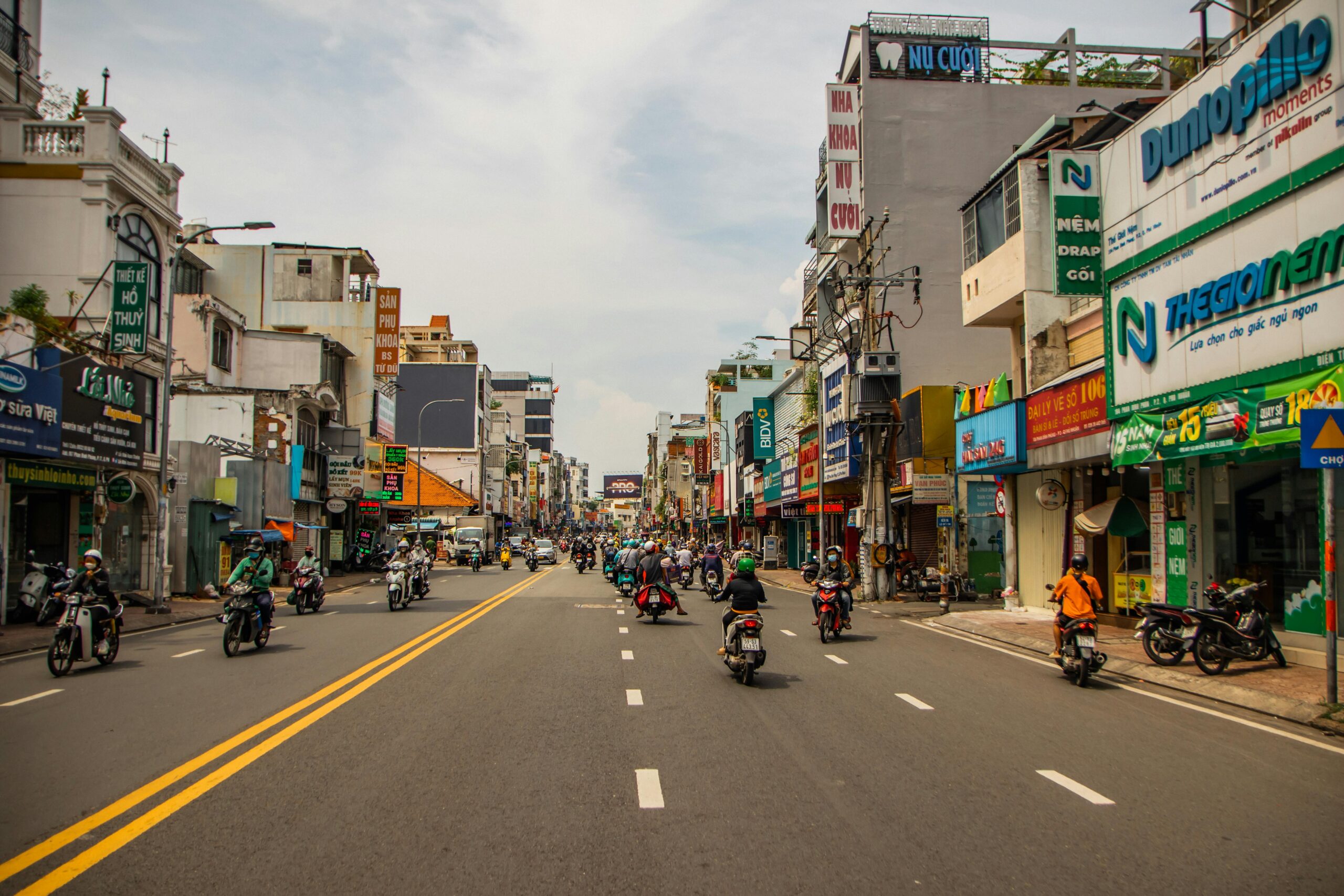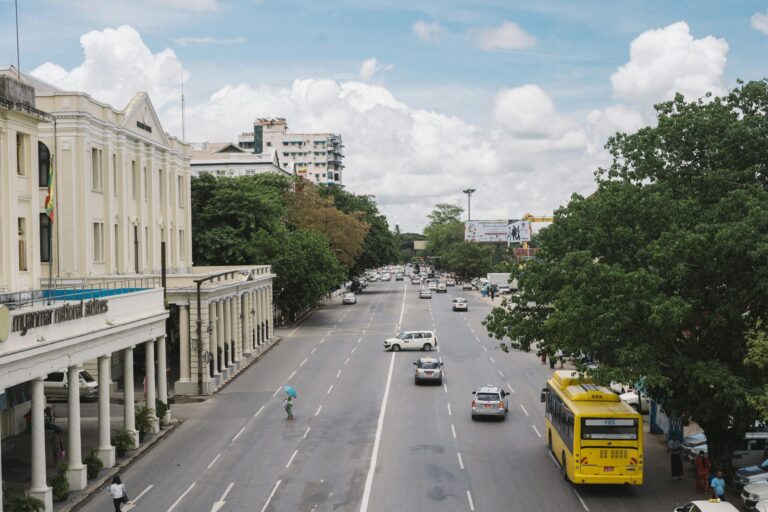How to Invest in Vietnam
⚠️ This post is for informational purposes only. It is not investment advice.
We believe Vietnam is one of the most attractive markets in Asia. Vietnam’s rapid GDP growth, young population, and expanding middle class make it one of Asia’s most compelling emerging markets, especially for investors willing to navigate its unique access and regulatory hurdles.
The biggest problem facing investors is access. Especially from abroad, accessing Vietnamese investment opportunities can be challenging. And while there are lucrative investments to be made, the accessibility issue is further compounded by language and logistical barriers.
In this post, we explain ways that foreign investors can invest in Vietnam and why Vietnam is an attractive option.
Why Vietnam?
Vietnam is a developing rapidly, and literally everywhere in the country one can see development, startup businesses of all shapes and sizes, and an expanding, increasingly consumer-driven middle class.
Here is some data that makes Vietnam attractive:
- GDP Growth: 6–7% annual average over the past decade, with a target of 8.0% in 2025
- Median Age: Just under 33 (compared to 40 in China and 48 in Japan)
- Urbanization: Around 34% of the population is now urban, up from 30% a decade ago. Projection: 44–45% by 2030
- Middle Class Growth: Expected to double from 13% in 2023 to about 26% by 2026; McKinsey projects nearly 75% of population entering “consuming class” by 2030
Compared to other countries in Asia that seem to have already peaked in GDP growth or have older populations and low birthrates, Vietnam still has a lot to offer. While these attractive trends are not guaranteed to continue, there is much to be optimistic about in Vietnam.
Direct Equity Investment
For investors based in Vietnam, or those willing to go through the regulatory process, opening a local brokerage account offers the most direct exposure to Vietnamese equities. By opening a domestic trading account through firms such as SSI or VNDirect, investors can access a wide range of companies listed on the Ho Chi Minh Stock Exchange (HOSE) and Hanoi Stock Exchange (HNX). This gives investors full control over which stocks they buy and sell, often with lower fees than ETFs. Additionally, investors can benefit from dividends, shareholder rights, and company updates not always passed through by foreign-traded funds.
While the process for setting up an account is complex (it involves opening a Vietnamese bank account, a trading code from the Vietnam Securities Depository, and notarized documentation) it is entirely possible to complete from abroad using a licensed broker. This option is best for serious investors who want deep exposure to the market and are comfortable navigating some bureaucracy and language barriers. Once set up, direct access enables full participation in Vietnam’s growth sectors, including real estate, banking, and consumer goods.
Vietnam ETFs
For most foreigners, especially those residing outside Vietnam, the simplest way to invest is through Vietnam-focused ETFs listed in the U.S. or other international markets. Two primary options include the VanEck Vietnam ETF (VNM) and the newer Global X MSCI Vietnam Access (VNAM). These funds provide diversified exposure to Vietnamese companies without the need to open a local trading account.
VNM and VNAM give similar Vietnam equity exposure but differ in how they’re built and what that means in practice. VNM tracks MarketVector’s Vietnam Local Index (Vietnam-incorporated stocks) with an 8% cap per stock at rebalance. It’s older, larger, and more liquid fund (launched 2009) but currently charges a higher 0.68% fee. VNAM follows an MSCI index that applies U.S.-style 25/50 diversification limits (no stock over 25%, big positions capped in aggregate), is newer and smaller (launched 2021) and carries a lower 0.51% fee. Both rebalance quarterly and tend to be financials/real-estate heavy.
While ETFs can underperform the local VN-Index due to tracking errors, ownership restrictions, and reduced flexibility, they remain an accessible option for global investors.
Buying Property in Vietnam
Foreigners are allowed to purchase property in Vietnam under specific conditions, and real estate remains one of the more accessible asset classes for long-term investors. Although foreigners cannot legally own land, they can own the structures build on top of land through a leasehold agreement. These properties are usually apartments or condominiums.
Foreign buyers are permitted to own up to 30% of the units in any given condo building, and up to 10% of houses in a residential landed project. Properties are sold under leaseholds (50-70 years), with the option to extend the lease upon expiration. While this does not provide freehold ownership, lease renewals are commonly granted, and the system has become more transparent over the years.
The property market in Vietnam (particularly in cities like Ho Chi Minh City, Hanoi, and Da Nang) has seen consistent growth, supported by urbanization, infrastructure expansion, and rising demand from the country’s growing middle class. Many foreign buyers choose to purchase pre-construction (off-plan) units, which are often marketed aggressively to overseas investors. However, due diligence is essential. Not all developers are equally reliable, and contracts are usually written in Vietnamese, requiring professional legal review.
While foreigners can obtain mortgages from some Vietnamese banks, the process is complex and often requires large down payments, proof of income, and extensive documentation. These conditions are also often different from options offered to Vietnamese locals. Resultingly, many foreign property transactions are conducted in cash.
For investors who prefer a hands-off approach, Vietnam currently lacks a robust REIT (Real Estate Investment Trust) market. However, there are some indirect real estate exposure options available via listed developers on the stock exchange or regional ETFs that hold Vietnamese property firms.
Startup Investing
Angel investing in Vietnam has become more visible in recent years, particularly in big cities, where the startup ecosystem is growing rapidly. A wave of new companies is emerging in sectors like fintech, e-commerce, agritech, edtech, and logistics, and government policies have generally been supportive of entrepreneurship and digital innovation.
That said, angel investing in Vietnam is not easily accessible for most foreign investors. Many early-stage opportunities rely heavily on personal connections, network-based trust, and on-the-ground involvement. Language barriers, lack of standardized disclosures, and unclear legal protections for minority investors all pose real challenges.
Investors with legal residency, strong local partnerships, or experience in Southeast Asia are better positioned to participate in this space. If you’re based abroad, entering the Vietnamese startup scene is possible, but usually requires a local advisor/representative, locally conducted due diligence, and appropriate legal contracts.
There are a few emerging angel networks and syndicates that welcome foreign participation, such as Vietnam Angel Network or regional platforms like AngelHub or e27. However, deal flow is still relatively limited compared to more mature markets, and exits are infrequent.
We believe Vietnam’s startup space is exciting but not yet mature enough to be a reliable channel for most passive foreign investors. For those with deep regional knowledge, connections, and a long-term perspective, this market can certainty offer asymmetric upside. For others, it’s a high-risk play that should be approached with caution.
Conclusion
Vietnam is one of Asia’s most compelling growth stories, and for good reason. With a dynamic population, a resilient economy, and a growing role in global manufacturing and trade, the country continues to attract attention from investors seeking long-term exposure to emerging markets.
However, access remains the biggest hurdle. Whether you’re interested in stocks, real estate, or startups, investing in Vietnam as a foreigner often requires navigating complex rules, overcoming language barriers, and being willing to operate in a less transparent environment than more developed markets.
That said, for investors who are willing to do the work, Vietnam offers genuine upside. For those willing to go through the process of opening a local brokerage account, we believe Vietnam has some of the best potential in Asia.
At VinaEdge, we aim to simplify this journey by offering unbiased guidance, curated resources, and insights from investors on the ground. If you’re exploring investment options in Vietnam, or just want to learn more about the landscape, stay tuned for more guides, interviews, and practical tools to help you make informed decisions.





Hi, this is a comment.
To get started with moderating, editing, and deleting comments, please visit the Comments screen in the dashboard.
Commenter avatars come from Gravatar.